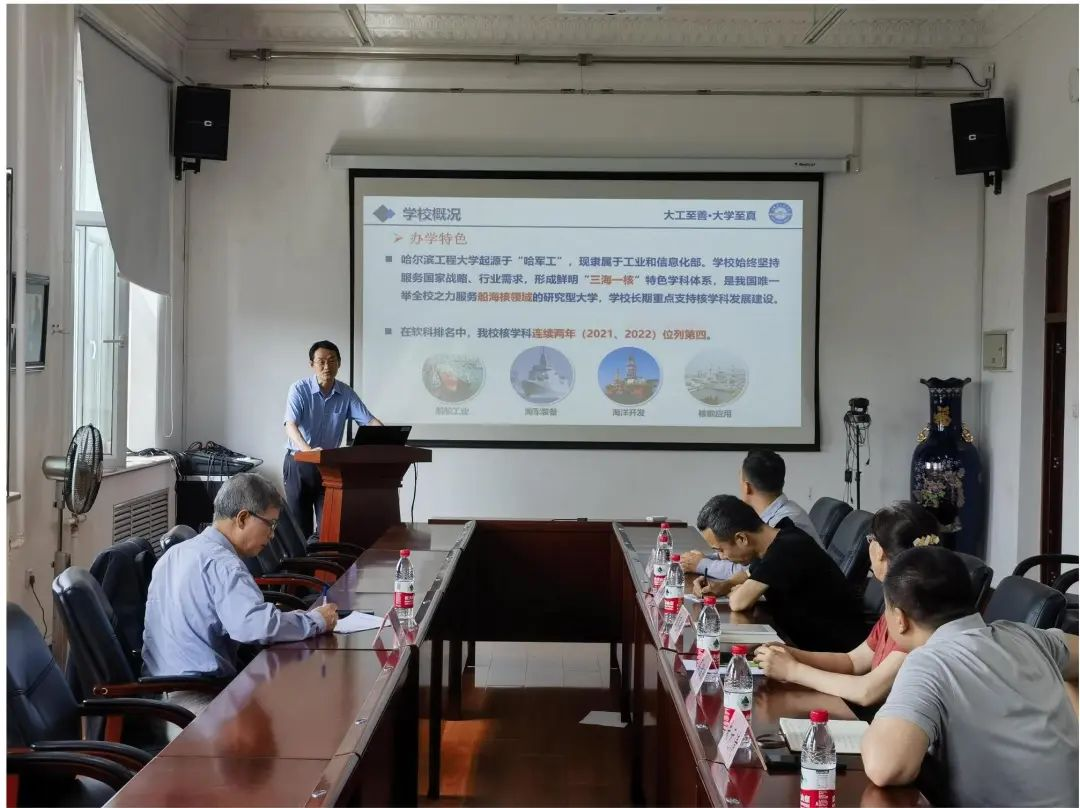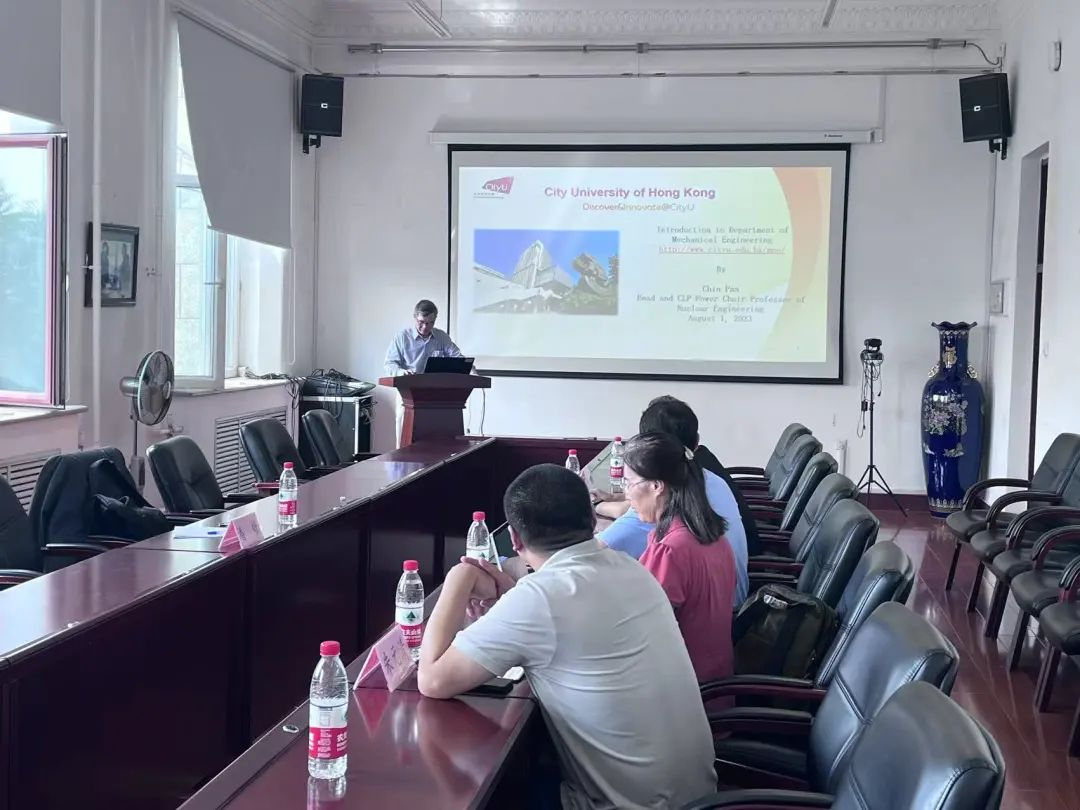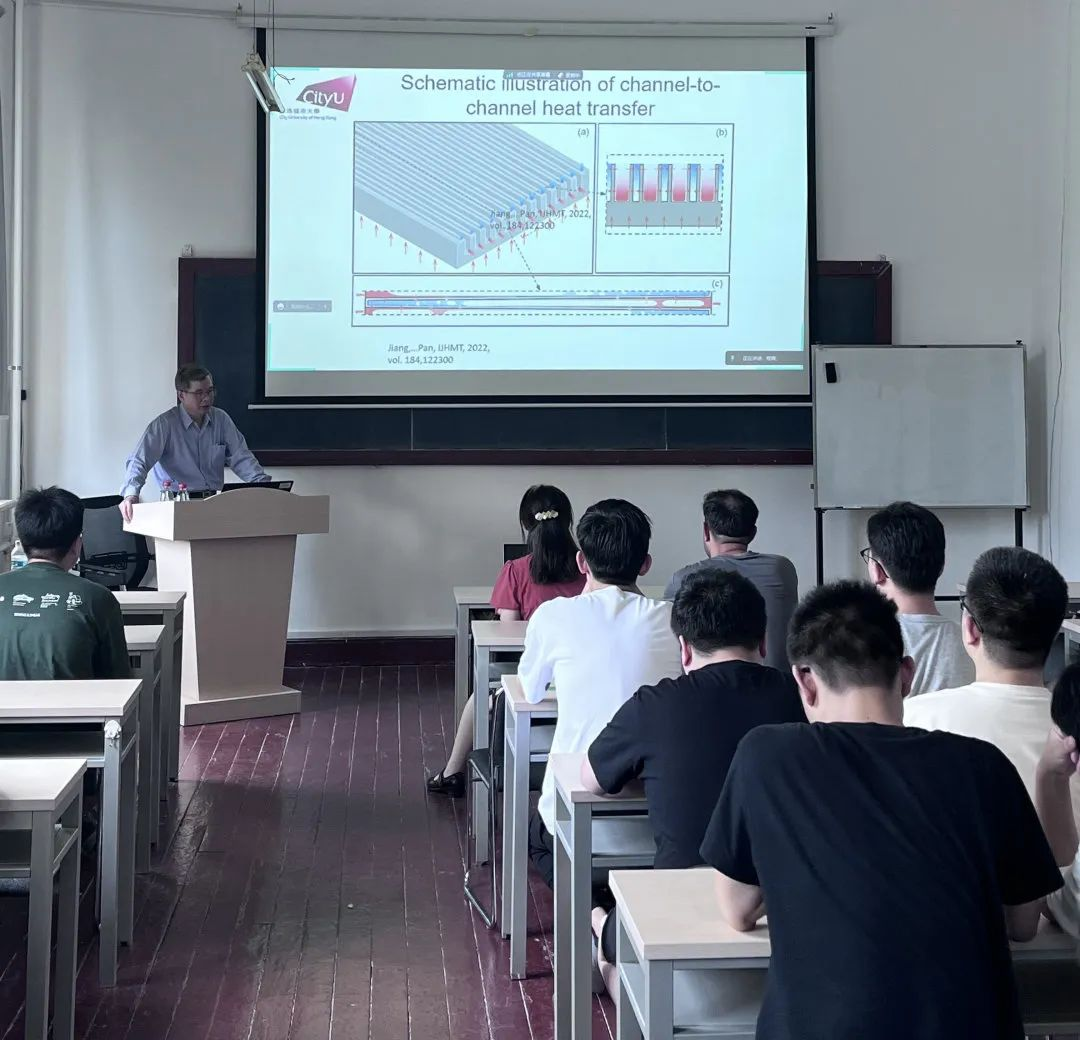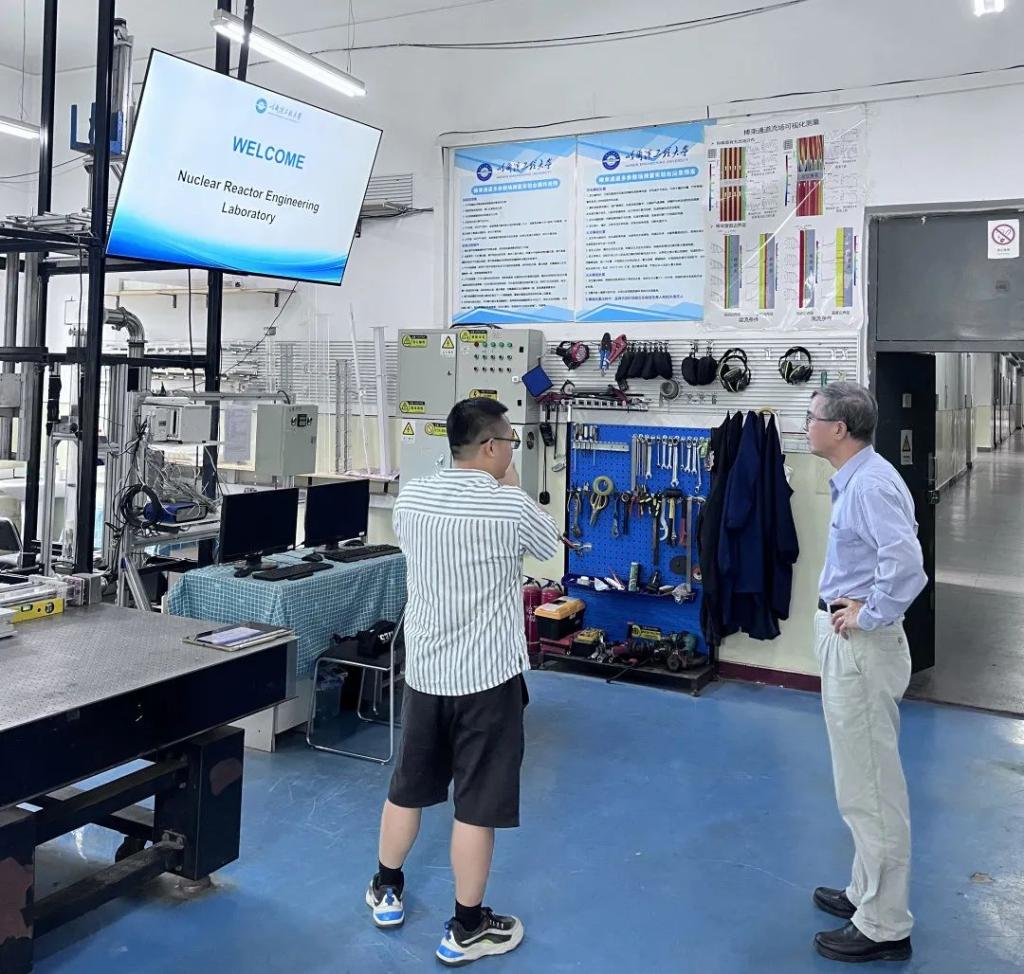From August 1 to 2, Professor Chin Pan, head of the Department of Mechanical Engineering, City University of Hong Kong, was invited to visit the College and conduct in-depth exchanges on joint student training, co-construction of courses, scientific research, and academic exchanges. Tan Sichao, dean of the College of Nuclear Science and Technology, deputy Dean Gao Puzhen, Wang Jianjun, assistant to Dean, and Zhu Yuanqing, assistant to Dean of the College of Power, attended the discussions.

Tan Sichao welcomed Professor Chin Pan's visit and briefly introduced the basic situation of talent training, scientific research and course construction of the College. Tan Sichao also expressed the hope of further strengthening both teacher- and student-level cooperation and exchanges with the Department of Mechanical Engineering of City University of Hong Kong in the future, and the hope of jointly planing special academic seminars, project cooperation and student exchanges around academic issues and technical issues of concern to both sides.

Chin Pan introduced the basic situation of Department of Mechanical Engineering of City University of Hong Kong, and expressed the hope that in the future the two sides would strengthen student exchanges, promote the construction of joint courses, carry out scientific research cooperation and academic exchanges and jointly hold academic conferences.
Gao Puzhen, Wang Jianjun and Zhu Yuanqing exchanged views on course construction, academic exchange and scientific research. The two sides jointly discussed the Memorandum of Intent on Cooperation between the College of Nuclear Science and Technology of Harbin Engineering University and the Department of Mechanical Engineering of City University of Hong Kong, which clarified the intention of future cooperation and confirmed the next actions.
In the afternoon, Professor Chin Pan gave a lecture on the theme of "Research and Development of Ultra-high-performance Radiator" in the meeting room on the 2nd floor of Building 31, and had a full academic discussion and exchange with teachers and students of the College.

In the lecture, Professor Chin Pan proposed a kind of high-performance heat exchanger based on counter-current gradually- expanding micro-channel structure, which is able to achieve much higher heat flux than that achieved by previous heat exchanger, and greatly enhance the heat exchange performance. At the same time, the performance of this radiator is stable, and it has a wide range of application potential.
Combing with the research direction of our faculty, Professor Chin Pan also made an introduction to the fields of natural circulation and emergency core cooling. Aiming at the background of the problem of seawater cooling for reactor core after the nuclear accident in Fukushima, Japan, high-speed photography technology was adopted to study the transient boiling heat exchange phenomenon of high-temperature metallic balls in seawater and deionized water respectively, revealing different heat exchange mechanisms in seawater environment, and analyzing the advantages and existing problems of seawater cooling. Some advances in the study of natural circulation using seawater were also introduced.

During his visit to HEU, Professor Chin Pan also visited the College’s laboratory and the College of Power.